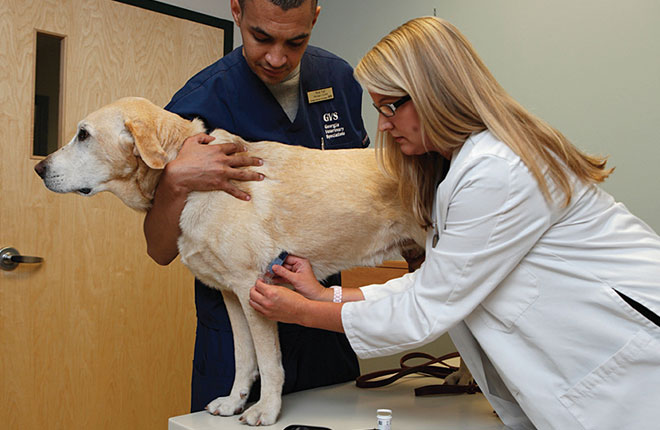Comprehending Your Animals' Nutritional Needs for Ideal Health And Wellbeing

Relevance of Well Balanced Diet Plans
Making sure a balanced diet regimen for family pets is essential for their overall wellness and well-being. Pet dogs, like humans, call for a blend of proteins, carbs, fats, minerals, and vitamins to maintain ideal wellness.
Incorporating a range of nutrients makes sure that pets preserve a durable body immune system, healthy and balanced skin, and a glossy coat. Additionally, a well balanced diet regimen can avoid a host of wellness issues such as obesity, which is linked to diabetics issues and joint issues, or lack of nutrition, which can lead to developmental delays and organ disorder.
Animal owners should be mindful of part dimensions and calorie intake, as overfeeding or underfeeding can have major consequences. Consulting with veterinarians or animal nutritionists can assist customize diet plans to meet specific needs, guaranteeing that animals get the suitable equilibrium of nutrients necessary for their dimension, age, and activity level. A consistent and balanced diet is important for a family pet's longevity and joy.
Species-Specific Nutritional Demands
Exactly how do different varieties of animals have varying nutritional requirements? This inquiry highlights the need for a tailored strategy to feeding our animal friends. Each species has special metabolic pathways, gastrointestinal systems, and nutritional demands that should be met for ideal health. For circumstances, canines are omnivores, calling for a balanced diet regimen of carbs, fats, and healthy proteins, while cats, as obligate predators, need a greater healthy protein intake acquired mostly from animal resources.
Birds, depending on their types, might need a diet plan abundant in seeds, fruits, or insects, emphasizing the variety within the bird globe. Pets. Reptiles, such as serpents and turtles, likewise need species-specific diet plans, with some needing high degrees of calcium and others, a well-calibrated equilibrium of pests and plant issue
Failing to give species-appropriate nutrition can result in unwanteds or deficiencies, impairing health and long life. Feeding a feline pet food could result in taurine shortage, leading to severe health and wellness problems such as heart illness. As a result, recognizing the nutritional differences among various species is critical for family pet proprietors. By providing and acknowledging to these differences, we ensure the arrangement of correct nourishment, sustaining the overall well-being and vigor of our pet dogs.
Age and Dimension Factors To Consider
While species-specific nutritional needs lay the foundation for a pet's diet plan, age and size more improve these needs. Young animals, such as pups and kitties, call for diet plans abundant in calories, proteins, and important nutrients to sustain fast development and development. These young creatures have greater metabolic prices and require more regular feedings to maintain their energy degrees and guarantee correct development of muscle mass, bones, and body organs.
As pet dogs age, their nutritional demands change significantly. Adult animals usually call for fewer calories than their younger counterparts however still need a well balanced diet to keep general health and wellness and vigor. Formulations made for grown-up animals frequently focus on preserving weight, advertising digestion health and wellness, and supporting an energetic way of life. Alternatively, elderly pets may profit from specialized diet plans that deal with age-related challenges, such as joint wellness, cognitive function, and body organ assistance.

Health Conditions and Dietary Adjustments
Certain health and wellness conditions can dramatically affect the nutritional demands of pets, requiring tailored dietary modifications to support their wellness. Family pets with diabetes might profit from diets that are high in fiber and reduced in easy carbohydrates to aid official statement manage blood sugar degrees. Similarly, overweight pets commonly call for reduced-calorie diet plans to promote weight reduction and avoid involved health and wellness complications.
Family pets with kidney illness might require diet plans low in phosphorus and protein to reduce kidney work. Omega-3 fatty acids, known for their anti-inflammatory residential properties, can be helpful for pets struggling with problems like arthritis or inflammatory bowel condition. In addition, animals with food allergic reactions or intolerances may need hypoallergenic diets, frequently needing a process of elimination to determine and leave out upseting active ingredients.
Vet advice is essential when making nutritional modifications, as wrong nutrition can intensify existing illness or result in new ones. Routine tracking and adjustments based on the family pet's feedback to dietary modifications are necessary. A well balanced approach, thinking about both clinical and dietary needs, makes sure that nutritional treatments contribute positively to handling health conditions, boosting not just the family pet's wellness however likewise their lifestyle.
Tips for Finding Top Quality Animal Food
Selecting the best family pet food is critical for guaranteeing your family pet's health and long life. A balanced diet regimen sustains their body immune system, maintains healthy weight and promotes overall vitality. Begin by consulting your vet to recognize your pet's certain nutritional news demands based upon type, age, and health and wellness status.
When assessing pet food, scrutinize the component checklist. Top quality pet foods typically note actual meat, poultry, or fish as the primary active ingredient. Prevent products with extreme fillers like corn, soy, or spin-offs that supply restricted dietary worth. Look for identifiable components and natural chemicals instead than man-made ones.
Look For the Association of American Feed Control Officials (AAFCO) statement on the product packaging. This suggests the food meets well established nutritional standards. Additionally, research the supplier's track record. Brand names with a background of recalls or low quality control should be approached with caution.
Think about whether your pet would certainly benefit from unique formulas such as grain-free, high-protein, or limited-ingredient diet plans. These can be helpful for family pets with allergic reactions or particular health concerns. Last but not least, observe your animal's reaction to the food. Screen their coat problem, power levels, and digestion to make sure the diet regimen works.
Final Thought
A comprehensive understanding of pet dogs' nutritional requirements is crucial for promoting their optimum health and wellbeing. By sticking to these principles, animal proprietors can dramatically add to their family pets' growth, energy levels, and total health, cultivating a happier and healthier life.

Picking the appropriate family pet food is crucial for guaranteeing your animal's health and durability. By adhering to these concepts, pet dog proprietors can significantly contribute to their animals' growth, power levels, and general health and wellness, cultivating a dig this better and much healthier life.